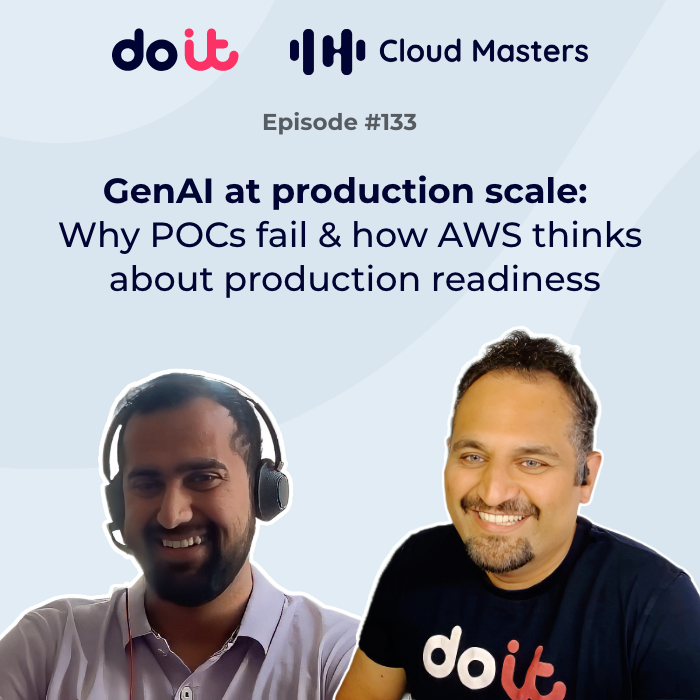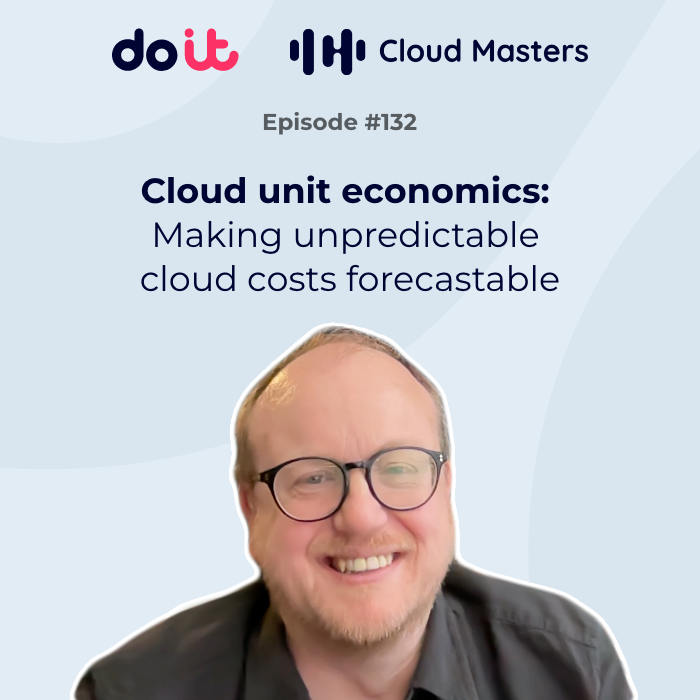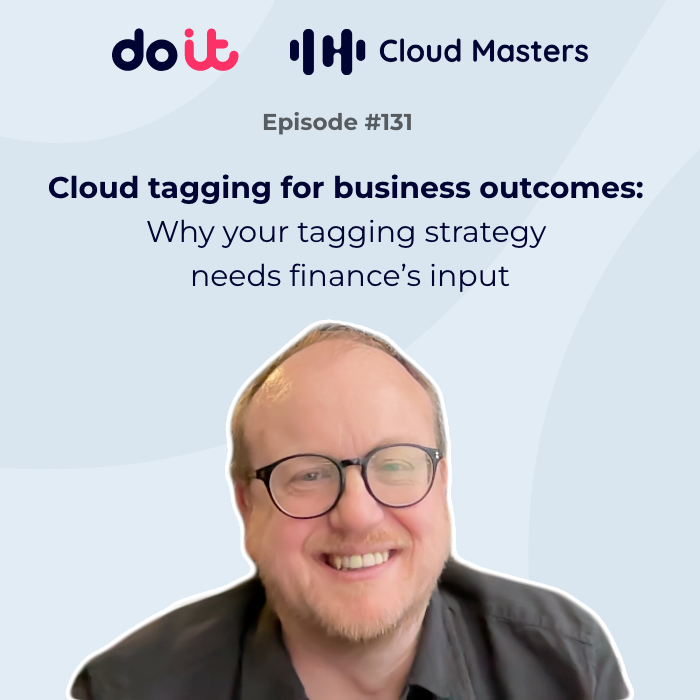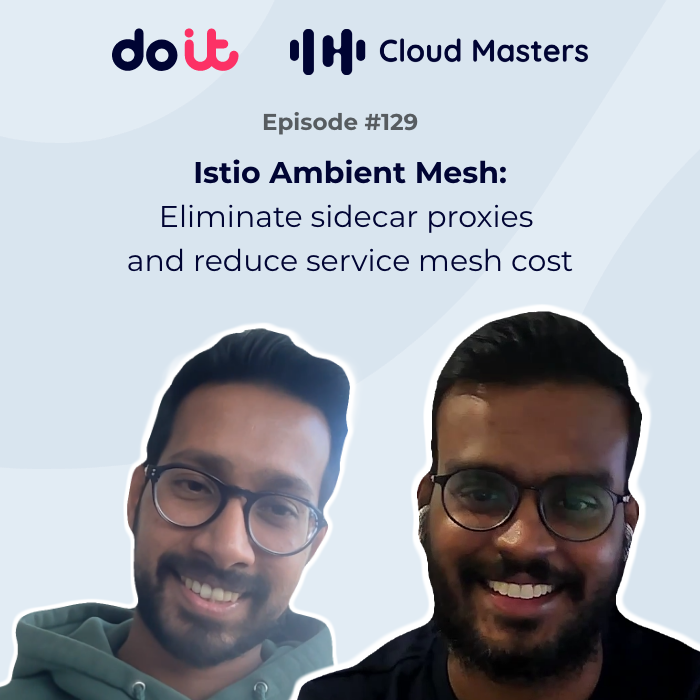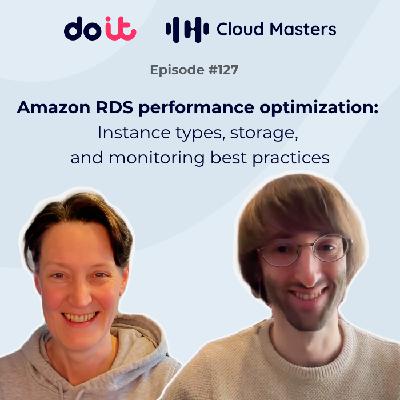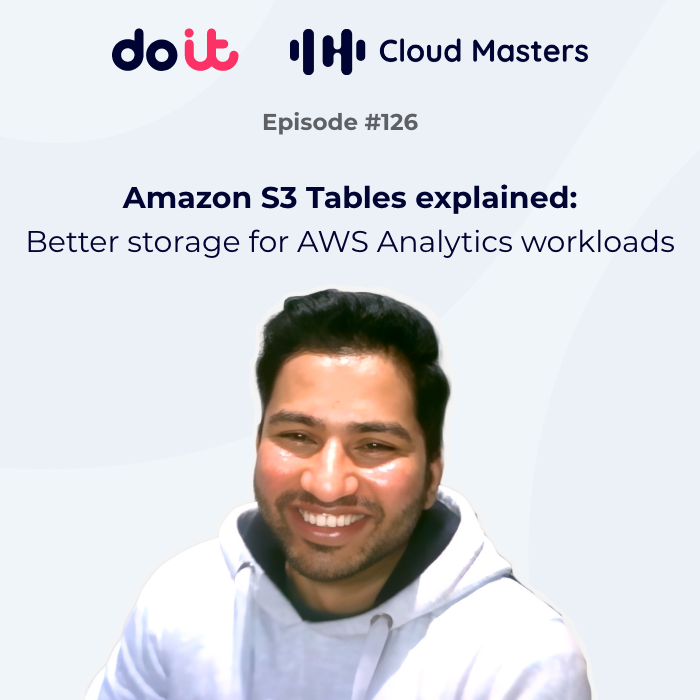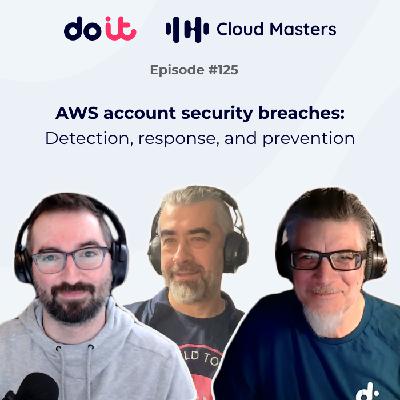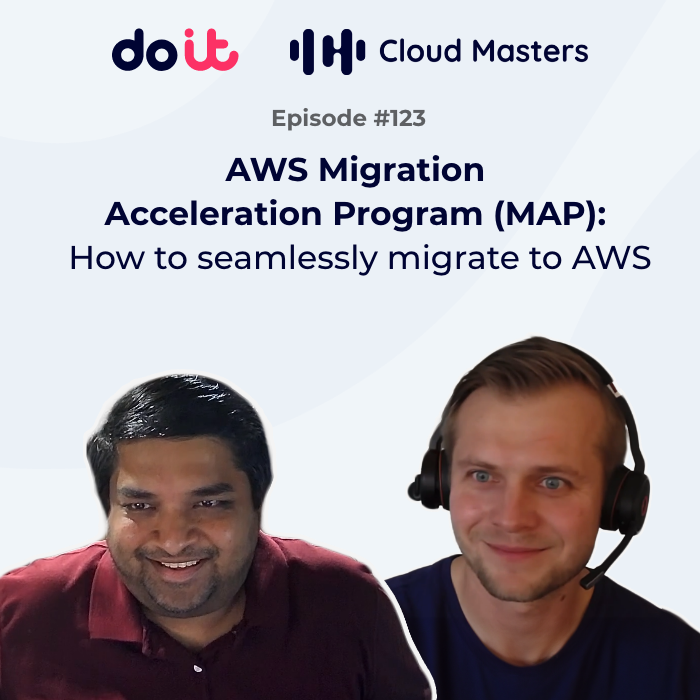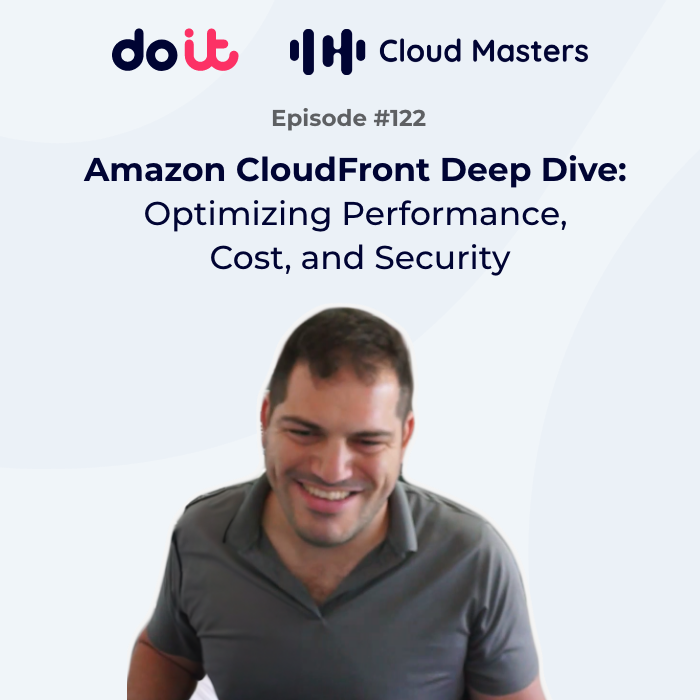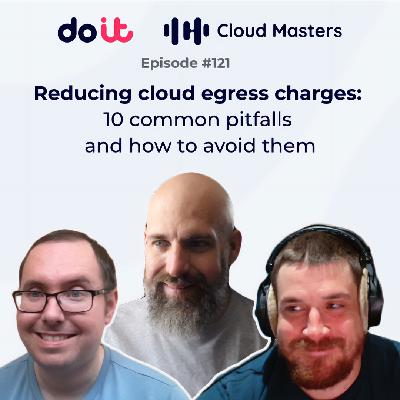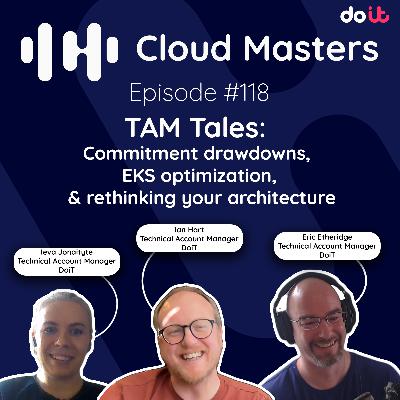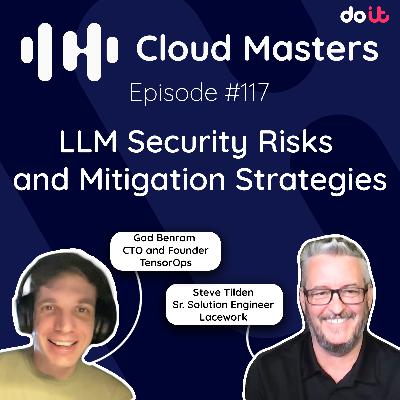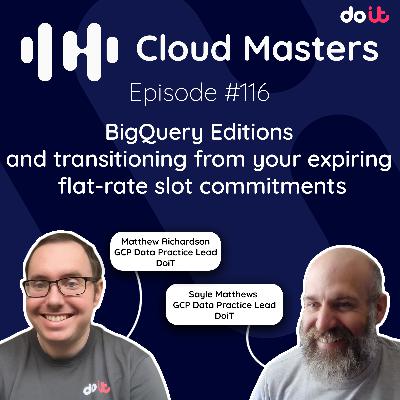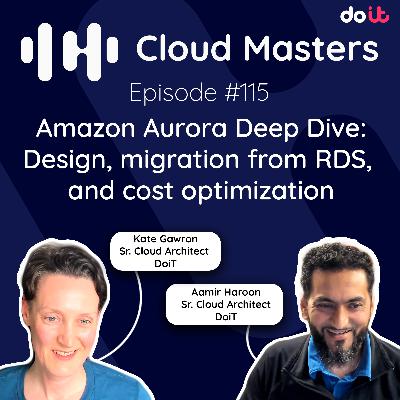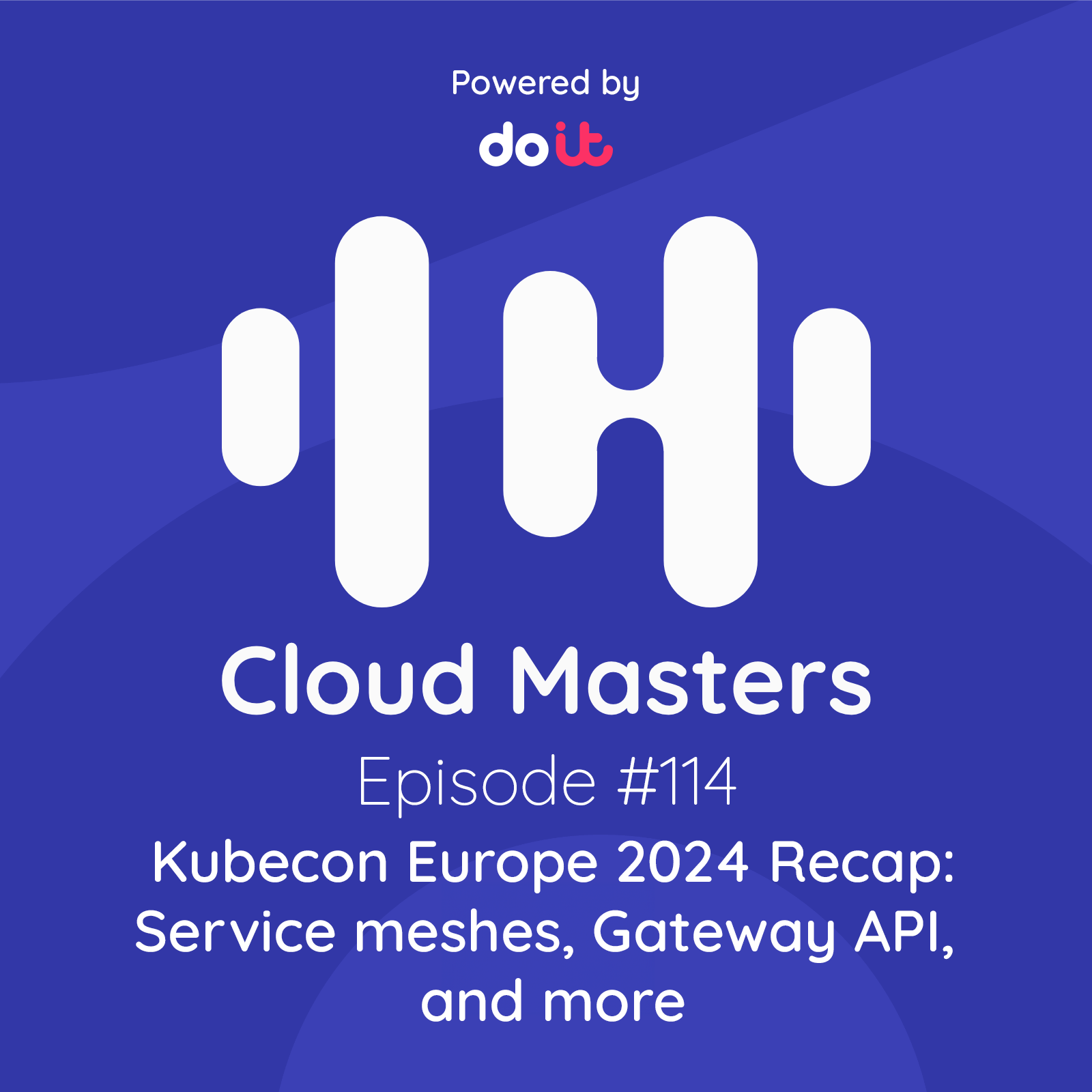Discover Cloud Masters
Cloud Masters

33 Episodes
Reverse
We're joined by two GenAI experts from AWS and DoiT to understand why GenAI POCs fail at production scale, how to evaluate LLMs, and how to approach GenAI production readiness. The discussion covers four GenAI workload migration patterns, AWS Bedrock's systematic migration framework, enterprise compliance challenges including HIPAA and GDPR requirements, and practical approaches to evaluating model performance across speed, cost, and quality.
We cover how unit economics transforms unpredictable cloud costs into forecastable spending patterns. To do so, we go over examples of how connecting cloud spending to business demand drivers (ex. customers served; transactions processed) creates predictable patterns that finance teams can budget for. The conversation also covers practical implementation strategies and common mistakes companies make when starting with unit economics.
Finance teams must actively participate in cloud tagging strategies to connect costs to business outcomes. Learn why finance involvement prevents allocation chaos and enables strategic decisions.
Finance leaders struggle to adapt traditional budgeting to cloud's pay-as-you-go model. Learn how to transition from CapEx to OpEx thinking and establish effective governance frameworks. Discover why finance teams should lead tagging strategies to connect cloud costs with business value.
We cover how Istio Ambient Mesh eliminates sidecar proxies to significantly reduce Kubernetes resource consumption. This episode covers the architectural differences between traditional service mesh and ambient mesh, practical migration strategies for different workload types, key metrics for measuring performance improvements, and real-world operational benefits like simplified troubleshooting and easier version upgrades.
We cover why AWS is now requiring MFA on all AWS account root users, and demo the new centralized root credential management feature that makes it easy to manage credentials across member accounts.
Learn how AWS database experts diagnose and solve the most common RDS performance bottlenecks, from storage configuration to instance type selection. Discover practical strategies to optimize your database costs while ensuring reliability, including when to choose between RDS and Aurora, how to pick the right storage type, and which metrics actually matter for monitoring.
AWS Analytics expert Swapnil Bhoite joins us to break down of Amazon S3 Tables. From comparing Parquet and Apache Iceberg formats to explaining critical features like compaction and snapshot management, Swapnil explores how this fully-managed service streamlines data lake operations. Learn when to adopt S3 Tables, understand its cost-performance benefits, and discover key migration considerations from existing Glue catalog implementations — essential knowledge for teams looking to scale their analytics workloads on AWS.
Learn actionable strategies for handling AWS security breaches from detection through prevention. AWS security experts share real incident response experiences, containment tactics, and practical tips for securing your AWS infrastructure.
Learn when Amazon Aurora DSQL is the right choice for your applications, what changes you'll need to make during migration, and how to handle its unique approach to optimistic locking.
We're joined by two AWS MAP experts to delve into the AWS Migration Acceleration Program (MAP). We go through its three phases: Assess, Mobilize, and Migrate & Modernize; and the program's framework, funding opportunities, and common misconceptions. More specifically, we discuss the importance of accurate capacity planning, TCO calculations, and tagging for successful migrations.
We also cover the critical role of project management, stakeholder involvement, and adhering to AWS Well-Architected Framework principles. The conversation touches on challenges in modernizing legacy applications, the significance of proper landing zone setup, and strategies for post-migration optimization. Finally, we conclude with best practices for cloud migrations, emphasizing the importance of involving skilled cloud architects and planning for the unpredictable nature of migration projects.
In this episode, we dive into Amazon CloudFront, exploring its benefits, use cases, and cost optimization strategies. Specifically, we go into the importance of Average Object Size (AOS) when wanting to sign a CloudFront PPA. We also discuss how using CloudFront saves you on data transfer costs compared to alternative solutions, its versatility in handling both static and dynamic content, and the importance of page-loading time for user experience. Finally, we conclude with an examination of security considerations when using CloudFront, including strategies for mitigating DDoS attacks while keeping costs in check.
We cover the 5 most significant Kubernetes updates of 2024: Gateway API, Pod in-place resizing, Container resource-based autoscaling, Support for Swap, and User Namespaces.
Everything you need to know about Cloud Marketplaces: Best practices for listing and co-selling, pitfalls to avoid, and lessons learned from our guests' own experiences helping companies navigate marketplace listings.
Three Technical Account Managers (TAMs) from DoiT share real-life stories about overspending on cloud and managing cloud commitment drawdowns, with practical lessons and strategies for optimizing your own cloud costs.
We discuss the top security risks to be aware of when implementing LLMs in your product, and how to prevent them from occurring in the first place.
We're joined by two BigQuery specialists to cover how to transition from flat-rate to BigQuery Editions and on-demand pricing without overspending.
Covering when to use Aurora vs. RDS, common challenges when optimizing Aurora after migrating from RDS, I/O optimization and when I/O-optimized makes sense, and how to architect your Aurora databases for cost optimization.
Kubernetes specialist Alfred Tommy joins us to recap Kubecon Europe 2024, including Istio Ambient Mesh's sidecarless model vs. LinkerD, security tradeoffs between the two, K8sGPT, and more!


